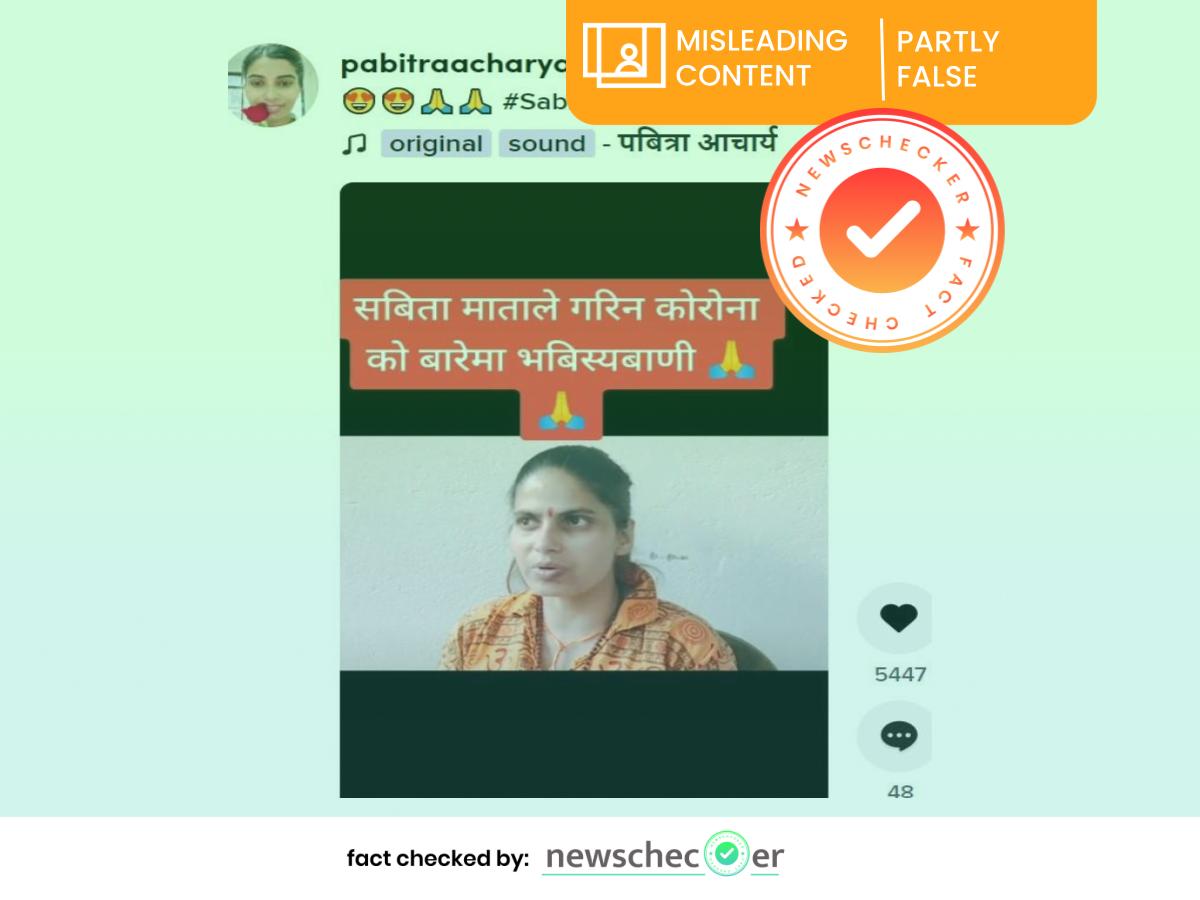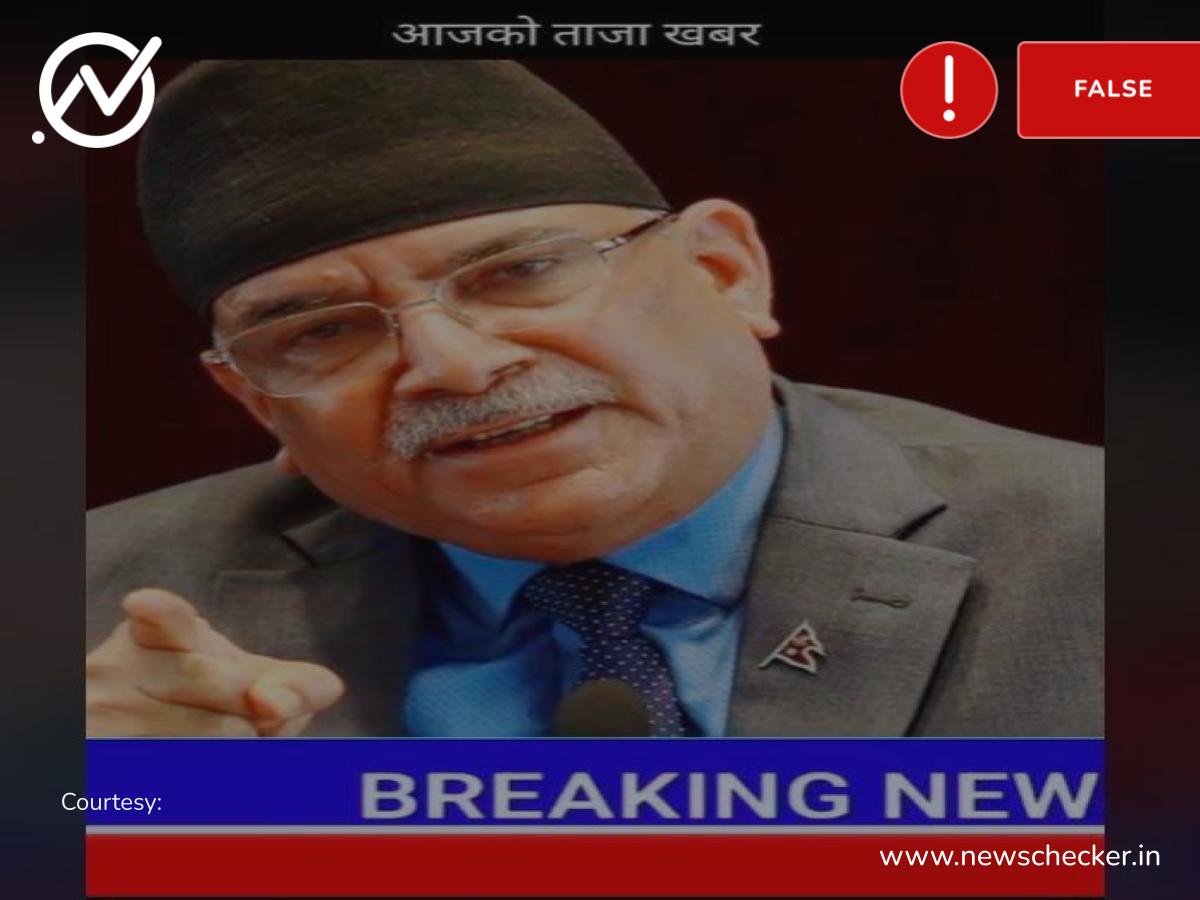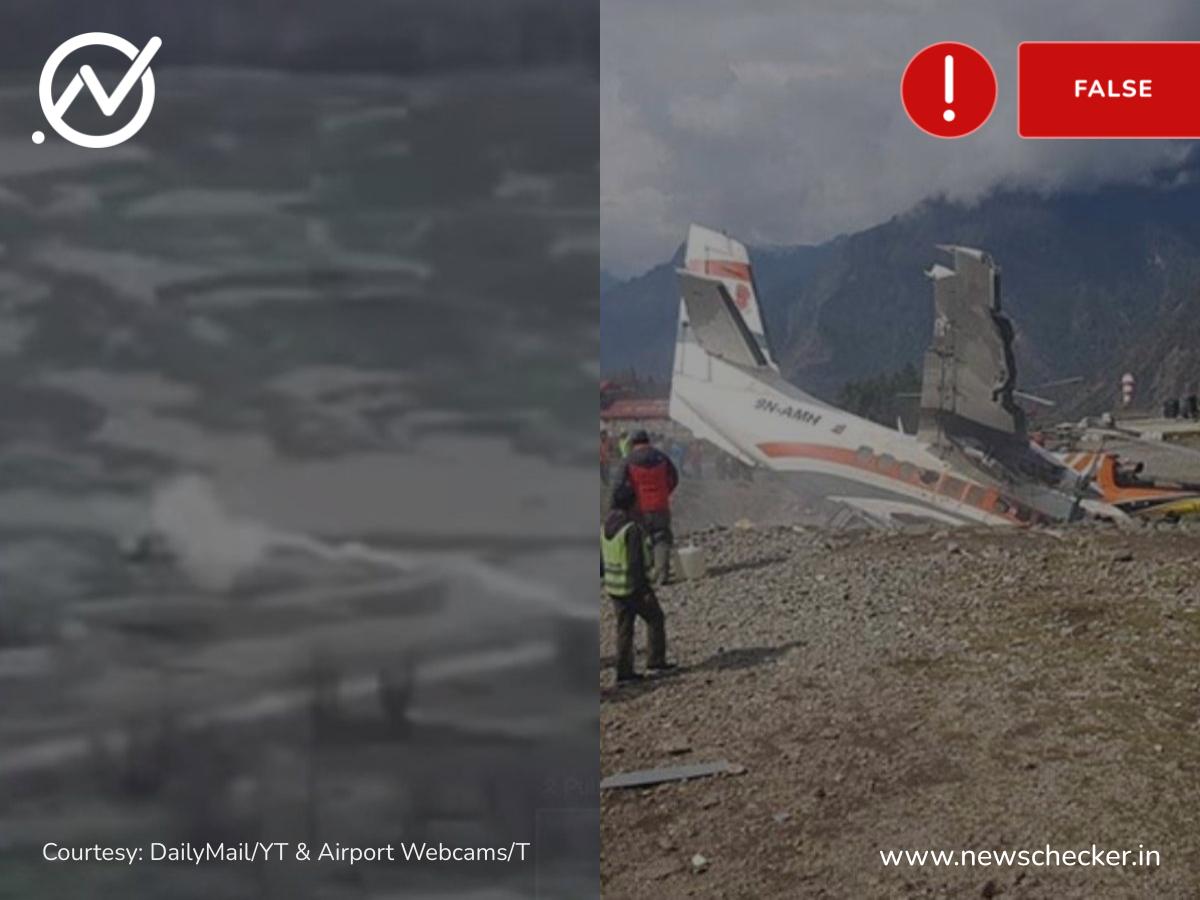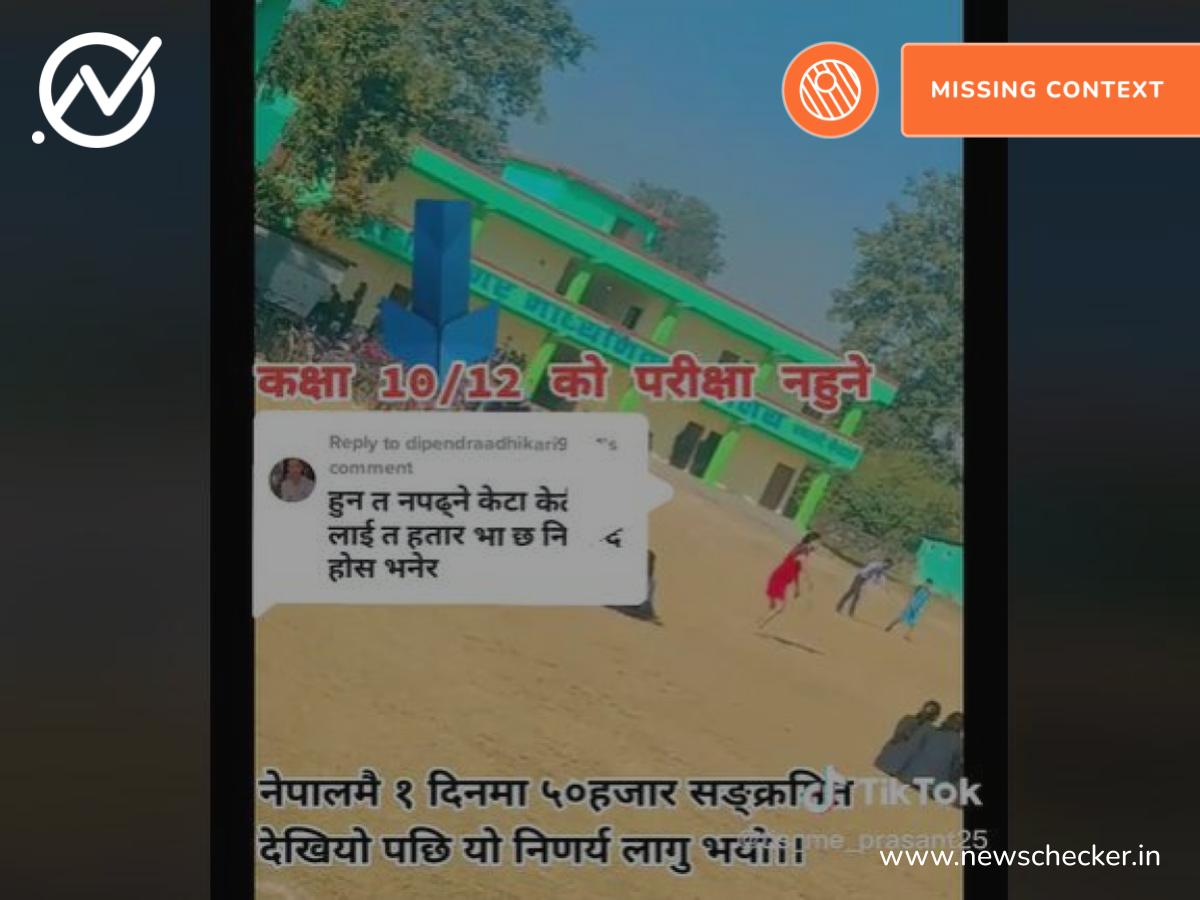Will the Coronavirus continue to wreak havoc around the world until 2027-2028 as claimed by a Nepali astrologer?
Social media in Nepal is abuzz with viral videos about the Coronavirus pandemic. One such viral video shows a Sabita Maata, a Nepali Hindu sadhvi and an astrologer claiming that “the impact of Coronavirus will last until 2027-2028 … and thereafter the situation will gradually begin to ease globally.”In the same video, she goes on to claim that “coronavirus does not exist” and that it’s a result of “global politics of the game of biological weapons.”
A TikTok video posted by a Nepali user on 22 June is still quite viral and is liked by over 5,400 and shared by nearly 100 users at the time of writing this article.

A quick research of social media platforms like YouTube and Facebook reveals that Sabita Maata has made similar ‘predictions’ about a variety of issues beyond covid, like the fate of Nepal’s former monarchy and other political and social issues.
In this YouTube video posted by Golden TV on 1 June, Sabita Maata outrightly rejects reports of the coronavirus spreading around Nepal causing hospitalisations and deaths.Sabita Maata on Golden TV’s YouTube video posted on 1 June
Sabita Maata’s videos and her predictions can also be found on Facebook.

Fact Check / Verification
First detected in Nepal on 13 January 2020, in a student returning from China’s Wuhan, the number of those infected with the Coronavirus have steadily increased and are showing no signs of going down. As of August 20, over 7 lakh Covid positive cases had been reported in Nepal.

The Ministry of Health and Population says that 6 Lakh 85 thousand people have recovered since. And 10,000 deaths have been reported to date due to covid 19 while case fatality rate is among the highest in South Asia at 1.5 per cent.
How long will Covid last?
As the world struggles to predict the future of the pandemic, scientists across the world continue to study the coronavirus and its various mutations as well as ways to counter it.
For its part, the World Health Organization has been emphasizing the need to increase the number of vaccinated people in communities and nations as the best possible way to develop herd immunity – which is obtained through vaccination or through the previous infection which offers protection from an infectious disease like Covid-19.
WHO, the global health watchdog also emphasises the need to vaccinate a substantial proportion of the population worldwide to develop herd immunity. However, only 4.72 billion doses – or 61 doses for every 100 people – have been administered globally as of now.
According to the New York Times’ vaccine tracker, South Asian nations are yet to fully vaccinate a “substantial proportion” of their populations with Bhutan being an exception with 62% of the population are fully vaccinated. Bhutan is followed by the Maldives (55%), Sri Lanka (17%), Nepal (12%), India (8.9%), Pakistan (5.6%), Bangladesh (3.3%) and Afghanistan, where only 2% of people have got Covid vaccine.
A survey published by Nature in February 2021 indicated that many participating scientists thought that the Covid19 causing coronavirus is here to stay. The survey also shows that most believe that it ‘could pose less danger over time’ by becoming endemic – meaning that its spread will become limited to specific countries or communities
They have cited examples of the Measles virus, which was managed after worldwide immunizations programmes, and the 1918 influenza pandemic which later became less severe and became seasonal flu that still claims roughly 650,000 lives every year.
Conclusion: The viral claims made by Nepali astrologer Sabita Maata are not based on scientific studies and researches; they are misleading.
Result: Misleading.
Our sources:
WHO: https://www.who.int/news-room/q-a-detail/herd-immunity-lockdowns-and-covid-19
Nature: https://www.nature.com/articles/d41586-021-00396-2
The New York Times:https://www.nytimes.com/interactive/2021/world/covid-vaccinations-tracker.html
If you would like us to fact check a claim, give feedback or lodge a complaint, email us at [email protected] You can also visit the Contact Us page and fill the form.






